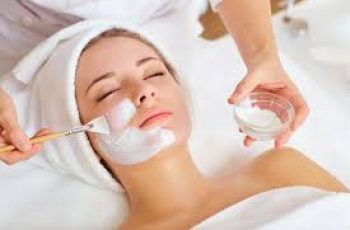
Skin Care Benefits of Retinol: Why It’s Good for Your Skin
If you’ve heard of retinol but aren’t sure what it does or why it’s so often recommended, you’re in the right place! This powerful ingredient has gained popularity for a reason—it’s a game-changer in the world of skincare. Whether you’re trying to tackle acne, fine lines, or sun damage, retinol is one of the most effective ingredients you can add to your routine. Let’s dive into why it’s so beneficial and how you can start incorporating it into your skincare routine.
Why Should You Use Retinol?
Retinol is one of the most effective multitaskers in skincare. If you struggle with any of the following, retinol might just be your skin’s best friend:
Acne: Retinol helps to unclog pores and reduce blemishes.
Enlarged Pores: It helps tighten pores and smooth skin texture.
Fine Lines & Wrinkles: Retinol stimulates collagen production, reducing the appearance of aging signs.
Uneven Skin Tone & Texture: It evens out skin tone and improves texture by promoting skin cell turnover.
After about 4 weeks of use, you’ll start to see noticeable changes. And after 3 months, the results will be even more dramatic. Expect firmer, plumper skin that looks younger, smoother, and healthier. Sun damage, acne scars, and hyperpigmentation will visibly fade. Yes, it’s that effective!
What Exactly Is Retinol?
Retinol is a form of vitamin A, and it works wonders on your skin by promoting skin renewal. It speeds up the process of shedding dead skin cells and encourages the production of new, fresh skin cells, which gives your complexion a healthy glow year-round.
But that’s not all—retinol also penetrates deeper layers of the skin, supporting the production of collagen, the protein that keeps your skin youthful, firm, and plump. Collagen production naturally starts to decline around age 30, but retinol can help prevent and reverse this loss, maintaining your skin’s firmness and smoothness.
If you’re looking for an ingredient that tackles fine lines, uneven texture, sun damage, or acne, retinol is the go-to product to add to your skincare routine!
When Should You Use Retinol?
There’s some debate over whether you should use retinol during the day, but the best time to apply it is at night. Why? The primary reason is that sunlight can break down retinol and reduce its effectiveness. Also, while retinol itself doesn’t cause sunburns, it can make your skin more sensitive to sunlight, so using it at night helps you get the full benefits without causing irritation.
How to Use Retinol Effectively
Retinol is one of those ingredients that requires gradual introduction into your skincare routine. Since it’s powerful, starting slow can help your skin adjust and prevent irritation. Here’s a simple guide:
Start Small: Begin with a lower concentration of retinol (like 0.3%) to avoid overwhelming your skin.
Frequency: In the beginning, use it twice a week for the first two weeks. This gives your skin time to adjust without irritation.
Gradual Increase: After two weeks, you can increase usage to every other night for another two weeks.
Consistency: Over time, your skin will adjust to retinol, and you can increase the concentration and frequency as your skin builds tolerance.
Maximum Strength: Eventually, you can work your way up to 1% or even 2% strength, depending on how your skin responds.
Pro Tip: Be patient—retinol requires consistent use to show the full benefits. It can take about 4–6 weeks to see significant improvements, and even longer for more dramatic changes, like the reduction of fine lines or hyperpigmentation.
Can I Use Retinol If I Have Acne?
Absolutely! In fact, retinol is a powerhouse for acne-prone skin. It works wonders by:
Unclogging pores, which is key in preventing acne.
Accelerating skin cell turnover, meaning that dead skin cells don’t stick around long enough to clog pores.
Helping with acne scarring, as it fades pigmentation and promotes smoother skin.
Over time, you’ll see less acne and fading of the scars left behind by previous breakouts. After about 3 months of use, those stubborn acne marks will become much less noticeable.
Can I Use AHAs or BHAs with Retinol?
Yes, you can use AHAs (alpha-hydroxy acids) or BHAs (beta-hydroxy acids) with retinol, but it’s important to use them at different times or on alternate days. These exfoliating acids work on the top layers of your skin, while retinol penetrates deeper to encourage cell turnover and collagen production.
Together, they make a dynamic duo, but since both ingredients encourage exfoliation, you need to be cautious about over-exfoliating, which can lead to irritation. A safe approach is to use AHAs/BHAs in the morning and retinol at night, or alternate their use on different nights.
Can I Use Retinol If I’m Pregnant or Breastfeeding?
While retinol is incredibly effective, it’s best to avoid retinol products if you’re pregnant or breastfeeding. Retinol is a form of vitamin A, and high doses of vitamin A have been linked to birth defects. If you’re expecting or nursing, consult your healthcare provider for alternative skincare options that are safe for pregnancy.
Summary of Retinol Benefits:
Fights acne: Unclogs pores, reduces blemishes.
Reduces fine lines & wrinkles: Stimulates collagen for smoother, firmer skin.
Improves skin texture: Evens out skin tone and texture, reduces hyperpigmentation.
Boosts skin renewal: Encourages fresh, glowing skin by speeding up cell turnover.
Great for all skin types: Works wonders for oily, dry, combination, and sensitive skin types.
Conclusion
Retinol is a skincare game-changer. Whether you’re combating acne, fighting fine lines, or aiming for a smoother, more even skin texture, retinol delivers results. With consistent use and a slow build-up, you’ll see glowing, youthful skin. Remember, it’s all about patience and consistency, so start slow and enjoy the long-term benefits that retinol has to offer!
If you’re unsure whether retinol is the right fit for your routine, it’s always a good idea to check with a dermatologist for personalized advice.


